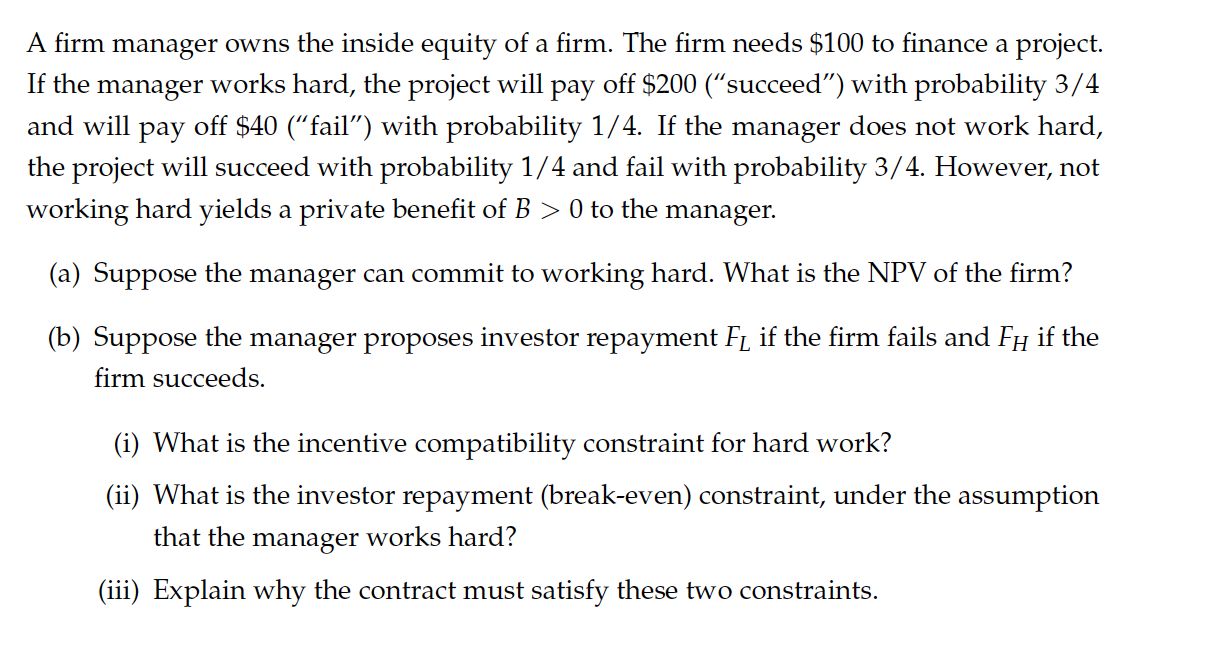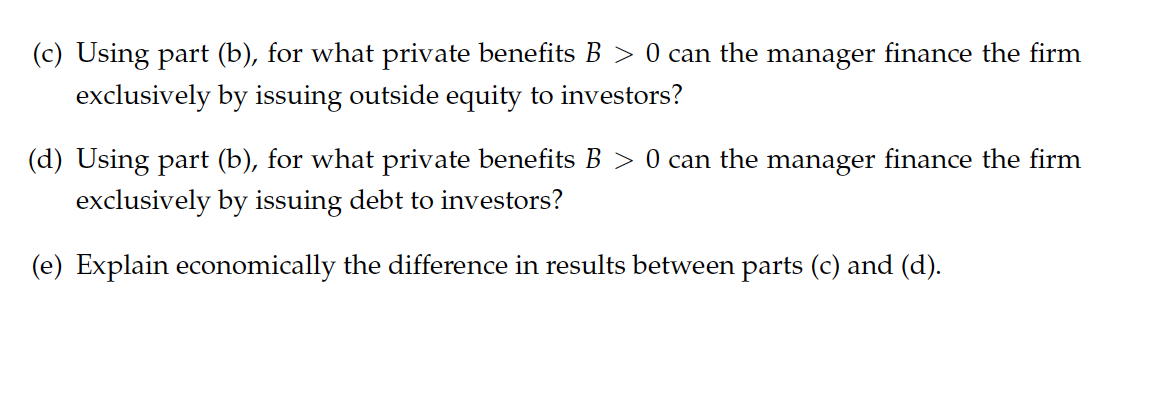

A firm manager owns the inside equity of a firm. The firm needs $100 to finance a project. If the manager works hard, the project will pay off $200 (succeed) with probability 3/4 and will pay off $40 (fail) with probability 1/4. If the manager does not work hard, the project will succeed with probability 1/4 and fail with probability 3/4. However, not working hard yields a private benefit of B > 0 to the manager. (a) Suppose the manager can commit to working hard. What is the NPV of the firm? (b) Suppose the manager proposes investor repayment F if the firm fails and FH if the firm succeeds. (i) What is the incentive compatibility constraint for hard work? (ii) What is the investor repayment (break-even) constraint, under the assumption that the manager works hard? (iii) Explain why the contract must satisfy these two constraints. (c) Using part (b), for what private benefits B > 0 can the manager finance the firm exclusively by issuing outside equity to investors? (d) Using part (b), for what private benefits B > 0 can the manager finance the firm exclusively by issuing debt to investors? (e) Explain economically the difference in results between parts (c) and (d). A firm manager owns the inside equity of a firm. The firm needs $100 to finance a project. If the manager works hard, the project will pay off $200 (succeed) with probability 3/4 and will pay off $40 (fail) with probability 1/4. If the manager does not work hard, the project will succeed with probability 1/4 and fail with probability 3/4. However, not working hard yields a private benefit of B > 0 to the manager. (a) Suppose the manager can commit to working hard. What is the NPV of the firm? (b) Suppose the manager proposes investor repayment F if the firm fails and FH if the firm succeeds. (i) What is the incentive compatibility constraint for hard work? (ii) What is the investor repayment (break-even) constraint, under the assumption that the manager works hard? (iii) Explain why the contract must satisfy these two constraints. (c) Using part (b), for what private benefits B > 0 can the manager finance the firm exclusively by issuing outside equity to investors? (d) Using part (b), for what private benefits B > 0 can the manager finance the firm exclusively by issuing debt to investors? (e) Explain economically the difference in results between parts (c) and (d)








